Accelerating growth in the mental health care workforce
Actions policymakers can take to grow and diversify the mental health care workforce.
Removing barriers to becoming a mental health professional is key.
By Simon Borger, LCSW, vice president for mental health and wellness
Millions of Americans struggle to access mental health care due to a shortage of trained professionals nationwide. Currently, over 1 in 3 people live in areas without enough mental health providers to meet the need.
Kaiser Permanente is working to change this. Through programs like our Mental Health Workforce Accelerator, we’re growing and diversifying the mental health workforce by removing financial and scheduling barriers that keep many people from entering the field.
The Mental Health Workforce Accelerator is already making an impact. But to truly solve the national shortage, we need public policies that expand these efforts and remove barriers.
Current barriers
As the need for mental health care rises, several barriers make it hard to grow the workforce, increase access, and provide care:
- Burdensome licensing standards: Aspiring mental health professionals must complete many supervised work hours to get licensed. In fact, some states require over 4,000 hours. That amounts to 2 years of full-time work. These hours are often unpaid. This can create financial strain and prevent new professionals from entering the field.
- Access to supervision: In rural and underserved areas, there are often not enough qualified supervisors. This slows down the licensure process for people who are eager to work in the mental health field.
- Workforce diversity: There is a strong need for a diverse and multilingual workforce that can better understand and serve people from different backgrounds.
A model for growth
Kaiser Permanente’s Mental Health Workforce Accelerator gives policymakers a model for how to grow the workforce. It’s making a difference by:
- Providing financial support and supervision: The accelerator offers job placements and stipends. This helps associates complete required supervised work hours without financial strain.
- Expanding access to supervision: Kaiser Permanente partners with Motivo, the largest virtual supervision platform. The partnership connects candidates with supervisors online. This removes geographic barriers and makes it easier to meet licensure requirements.
- Enhancing workforce diversity: The accelerator focuses on recruiting and training professionals from diverse backgrounds. This helps ensure that more communities receive culturally responsive care.
Following its success in Colorado and Georgia, the accelerator expanded to Southern California and Washington in 2024. It will also grow to include Hawaii in 2025.
Policy recommendations to grow the workforce
We recommend the following public policy changes to address the nation’s shortage of mental health care professionals.
- Increase funding for workforce development. Provide federal and state funding for training and supervision programs. This is crucial for helping more people enter the field and complete licensure.
- Streamline supervision requirements. Accelerate the timeline for training prior to licensure, create reasonable supervisor ratio requirements, and make the requirements consistent across states. Focus on making training practical and relevant to ensure new professionals can get licensed more easily and affordably.
- Support virtual supervision. Reduce geographic and financial barriers by allowing virtual supervision. This will make it easier for people in a variety of locations to get licensed.
- Incentivize community-based placements. Offer financial incentives to professionals who work in underserved communities. This will help ensure care reaches people who need it most.
If we make these changes, we can build a stronger, more diverse mental health workforce.
-
Social Share
- Share Accelerating Growth in the Mental Health Care Workforce on Pinterest
- Share Accelerating Growth in the Mental Health Care Workforce on LinkedIn
- Share Accelerating Growth in the Mental Health Care Workforce on Twitter
- Share Accelerating Growth in the Mental Health Care Workforce on Facebook
- Print Accelerating Growth in the Mental Health Care Workforce
- Email Accelerating Growth in the Mental Health Care Workforce

February 18, 2026
A better approach to preventing chronic conditions
With the right support from our policy leaders, we can help ensure fewer …

January 9, 2026
Can ‘airport divorce’ lower travel stress?
HuffPost

January 7, 2026
Building confidence and wellness through coaching
Kaiser Permanente and the Los Angeles Sports & Entertainment Commission …

December 15, 2025
‘Free’ drug samples aren’t really free
Pharmaceutical marketing hurts patient care and drives up costs. At Kaiser …

December 9, 2025
Buprenorphine saves lives. Why can’t more patients get it?
Policy changes are crucial for better opioid addiction treatment.

November 19, 2025
Will AI rules leave small hospitals behind?
Policymakers can design regulations that protect patients and work for …

October 28, 2025
California employers, meet our smarter Choice plan
Kaiser Permanente Plus™ more affordably adds some out-of-network flexibility …

October 21, 2025
Health coverage is key to early breast cancer detection
Timely screenings save lives and lower costs, but millions of people miss …

October 20, 2025
Building health connections in Colorado
Too many people face barriers trying to achieve good health. We partner …

September 17, 2025
More than a call
How the Kaiser Permanente Community Support Hub® call center helped one …

September 5, 2025
Congress must act to keep health insurance affordable
Enhanced premium tax credits help millions of people afford health insurance. …

August 5, 2025
Pharmaceutical marketing hurts patient care
At Kaiser Permanente, our doctors and pharmacists work together to ensure …

July 22, 2025
Mental health care without borders
When clinicians can practice across state lines, more people can get the …

July 15, 2025
A new chapter of Kaiser Permanente’s hospital care is born
Kaiser Permanente physicians and staff are now caring for patients at several …

June 26, 2025
Our commitment to vaccine access
Kaiser Permanente’s statement on vaccine access.

June 18, 2025
Helping youth connect, move, and thrive
After the third year of Kaiser Permanente and Los Angeles Football Club’s …

June 17, 2025
We must grow the health care workforce
At Kaiser Permanente, we educate future clinicians and offer programs that …

June 16, 2025
Getting care while traveling made easier
Kaiser Permanente’s agreement with Cigna provides our members with more …

May 22, 2025
Los Angeles area wildfires: How we helped our communities
We moved quickly to ensure that people in our communities could still get …

May 21, 2025
Trust unlocks AI’s potential in health care
Artificial intelligence can improve health care by reducing administrative …

April 23, 2025
Healing the human spirit
Kaiser Permanente strives to support survivors of sexual violence.

April 21, 2025
Congress must protect Medicaid and insurance tax credits
Medicaid and tax credits for acquiring coverage are essential for patients, …

March 27, 2025
We’re committed to mentorship, mental health, and communities
Kaiser Permanente awarded Elevate Your G.A.M.E. a grant to expand program …

March 25, 2025
AI in health care: 7 principles of responsible use
These guidelines ensure we use artificial intelligence tools that are safe …

March 24, 2025
Our nation's health depends on coverage
Health insurance is key to a strong country — it improves health and boosts …

February 25, 2025
Providing care to trauma survivors
Kaiser Permanente has been at the forefront of recognizing how trauma impacts …

February 20, 2025
Our nation’s health suffers if Congress cuts Medicaid
Reducing Medicaid funding will lead to worse health outcomes, overburden …

January 15, 2025
Why the U.S. needs more community health workers
With the right strategies and public policies, we can strengthen our nation’s …

November 11, 2024
Medicare telehealth flexibilities should be here to stay
We urge Congress to extend policies that have improved access to care and …

November 4, 2024
Recruitment and retention in behavioral health
An expert’s insights on the changing mental health landscape, its impact …

October 15, 2024
Our dedication to fostering well-being and equity
The 2023 Kaiser Permanente Southern California Community Health County …

October 4, 2024
Study shows new way to prevent suicides
Primary care teams can make a big difference in their patients’ lives, …

September 27, 2024
Traumatized children find mental health therapy beneficial
A Ventura County community-based nonprofit provides counselors to help …

September 17, 2024
Groundbreaking at new medical offices in Pueblo
The new Pueblo North Medical Offices will replace the existing facility …

September 16, 2024
Voting affects the health of our communities
In honor of National Voter Registration Day, we encourage everyone who …

July 22, 2024
Our nation’s health depends on well-funded research
Advanced medical science improves patient outcomes. We urge lawmakers to …

July 11, 2024
Transforming education and mental health in Watts
Our investment in the Watts neighborhood of California, in partnership …

June 28, 2024
Health Action Summit highlights mental health opportunities
The Kaiser Permanente Colorado Health Action Summit gathered nonprofits, …

June 19, 2024
Investments in Black community promote total health for all
Funding from Kaiser Permanente in Washington helps to promote mental health, …

May 24, 2024
Investing to meet health care needs
The new Wildomar Trail Medical Offices offer additional opportunities for …

May 7, 2024
Making cancer care more convenient in Southern California
Kaiser Permanente has opened a new Radiation Oncology Center at the Bellflower …

May 7, 2024
Can the badly broken prescription drug market be fixed?
Prescription drugs are unaffordable for millions of people. With the right …

April 25, 2024
Expanding access to cancer care in Southern California
Kaiser Permanente has opened a new Radiation Oncology Center and MRI Center …

April 12, 2024
It’s time to address America’s Black maternal health crisis
Health care leaders and policymakers should each play their part to help …

March 26, 2024
Donations assure access to affordable health care
Kaiser Permanente grant and challenge spark $18.7 million for Denver Health’s …

March 19, 2024
Fostering responsible AI in health care
With the right policies and partnerships, artificial intelligence can lead …

March 18, 2024
Program helps member prioritize her health
Medical Financial Assistance program supports access to health care.

February 26, 2024
Patients can apply for help with medical bills
Kaiser Permanente offers financial assistance for people struggling to …

February 13, 2024
A legacy of life-changing community support and partnership
The Kaiser Permanente Watts Counseling and Learning Center started as a …

February 12, 2024
Proposition 1 would bolster mental health care in California
Kaiser Permanente supports the ballot measure to expand and improve mental …

February 2, 2024
Expanding medical, social, and educational services in Watts
Kaiser Permanente opens medical offices and a new home for the Watts Counseling …

January 31, 2024
Prioritizing policies for health and well-being in Colorado
CityHealth’s 2023 Annual Policy Assessment awards cities for their policies …

January 29, 2024
Empowering minds to help others thrive
Supporting behavioral and mental health in communities where needs are …

January 22, 2024
Solutions for strengthening the mental health care workforce
Better public policies can help address the challenges. We encourage policymakers …
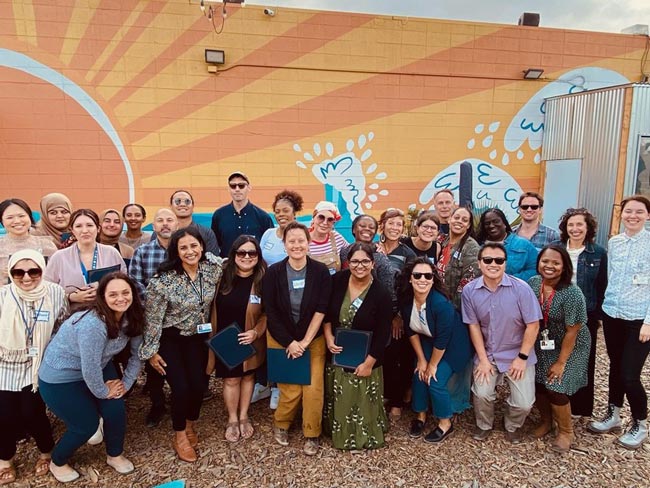
January 3, 2024
Addressing the shortage of mental health workers
There aren’t enough mental health professionals in the U.S. to meet the …

December 20, 2023
Funding solutions to end gun violence
Researchers and organizations are exploring inventive ways to reduce gun …
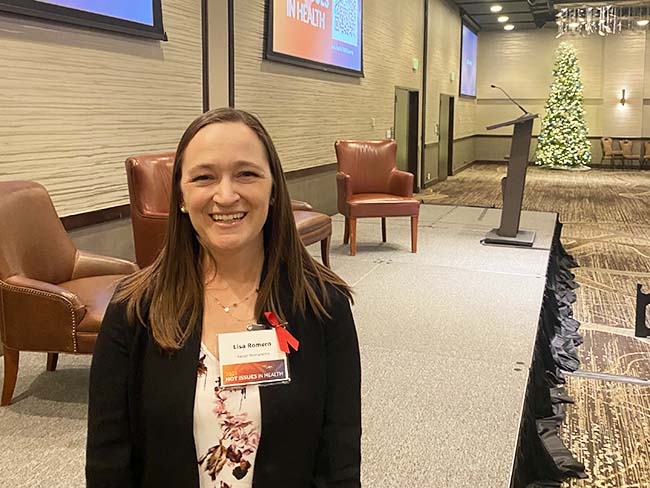
December 15, 2023
Climate change is already affecting our health
The health care industry is responsible for 8% to 10% of harmful emissions …

December 7, 2023
Safe, secure housing is a must for health
We offer housing-related legal help to prevent evictions and remove barriers …

November 13, 2023
Congress must act to address drug shortages
Kaiser Permanente is working to address drug shortages and support policies …

October 11, 2023
Bridging the mental health gap
Kaiser Permanente’s partnership with Fontana Unified School District brings …

September 13, 2023
Mental health champion: A mission inspired by personal loss
San Diego Wave Fútbol Club star defender Naomi Girma, Kaiser Permanente …

September 6, 2023
Advancing mental health crisis care through public policy
Organizations that provide public mental health crisis services must work …

August 28, 2023
Grants improve the total health of our communities
Kaiser Permanente increases access to mental health services in Southern …

August 22, 2023
Mental health
Expanding access to high-quality mental health services

August 2, 2023
Social health resources are just a click or call away
The Kaiser Permanente Community Support Hub can help members find community …

July 11, 2023
Our prescription for safe, effective, more affordable drugs
Our approaches ensure effectiveness and safety, and drive cost savings. …

June 30, 2023
Our response to Supreme Court ruling on LGBTQIA+ protections
Kaiser Permanente addresses the Supreme Court decision on LGBTQIA+ protections …

June 28, 2023
Making waves to empower young girls
Kaiser Permanente and the San Diego Wave Fútbol Club host a second Wave …

June 1, 2023
Policy recommendations from a mental health therapist in training
Changing my career and becoming a therapist revealed ways our country can …

May 30, 2023
Kaiser Permanente commits up to $10 million to Denver Health
Funding comes as Denver Health provided $120 million in uncompensated care …

May 22, 2023
Investing and partnering to build healthier communities
Kaiser Permanente supports Asian Americans Advancing Justice to promote …
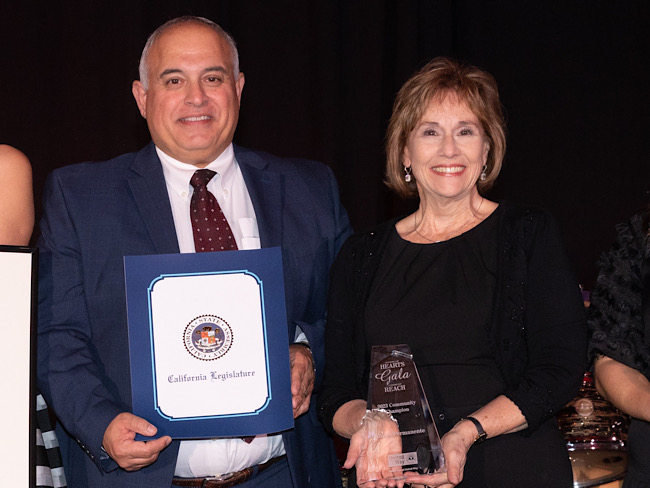
May 19, 2023
Partnering to improve the health of homeless individuals
Grant funds will combat housing inaccessibility and improve health care …
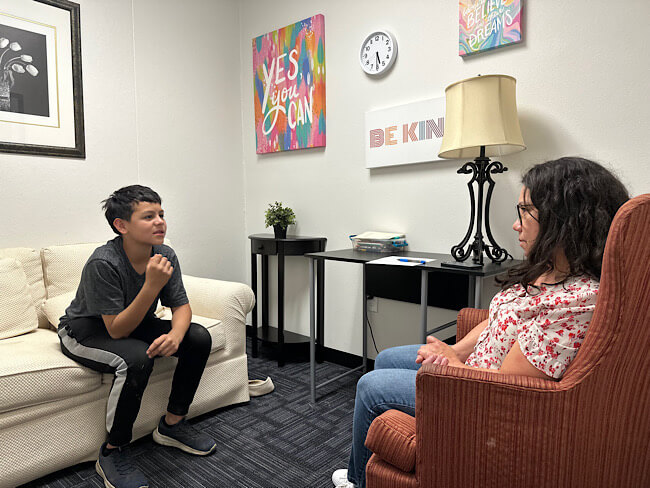
May 18, 2023
Addressing mental health trauma in a local community
Trauma-informed outreach efforts in Orange County are being recognized …

May 16, 2023
Managing trauma does not need to be traumatic
Expanded access to high-quality, affordable mental health care supports …

May 11, 2023
COVID-19 testing, testing — Get results in 1, 2, 3
Testing is the most important way you can help control the spread of COVID-19.

April 11, 2023
Collaboration is key to keeping people insured
With the COVID-19 public health emergency ending, states, community organizations, …

February 24, 2023
Nurturing expectant moms who have substance use disorders
Project Nurture in Portland, Oregon, provides treatment and a path forward …

January 17, 2023
Lawmakers must act to boost telehealth and digital equity
Making key pandemic-era telehealth policies permanent and ensuring more …

November 14, 2022
It’s time to rethink health care quality measurement
To meaningfully improve health equity, we must shift our focus to outcomes …

November 8, 2022
Protecting access to medical care for legal immigrants
A statement of support from Kaiser Permanente chair and CEO Greg A. Adams …

October 5, 2022
Safe travels: Our members now have more U.S. care options
Need urgent care in Florida? Michigan? Alaska? Here are 2 ways we’ve made …

August 16, 2022
Our support for the Inflation Reduction Act
A statement from chair and chief executive Greg A. Adams on the importance …

May 2, 2022
How to transform mental health care: Follow the research
We applaud President Biden and Congress as they begin to set policies that …

October 12, 2021
Beyond advocacy: Requiring vaccination to stop COVID-19
Kaiser Permanente and other leading companies are mandating COVID-19 shots …

July 7, 2021
Achieving health equity
Equal medical care is not enough to end disparities in health outcomes.

April 27, 2021
Health data privacy
Protecting our members’ personal health information

April 23, 2021
Medicaid
Delivering high-quality Medicaid coverage and services
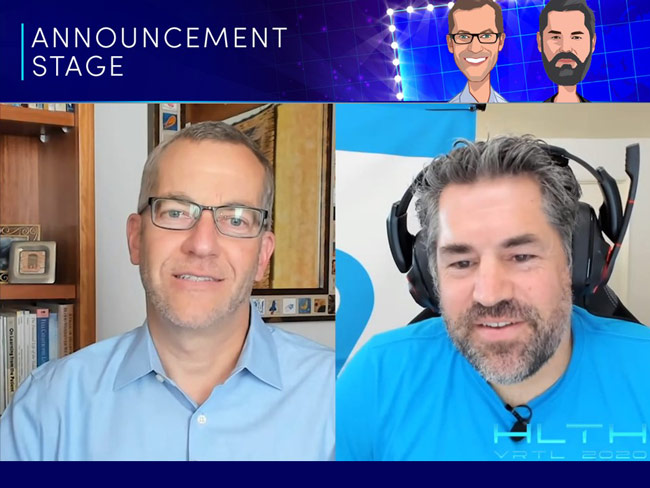
October 27, 2020
Sharing an innovative approach to youth mental health
Don Mordecai, MD, Kaiser Permanente’s national leader for mental health …

April 27, 2020
Health care reform
Affordable, accessible health care and coverage

March 1, 2020
Prescription drug pricing
Bringing down the high cost of medication

February 29, 2020
California

February 1, 2020
Georgia

February 1, 2020
Washington

February 1, 2020
Hawaii

February 1, 2020
Colorado

June 5, 2019
Breaking LGBT barriers for Kaiser Permanente employees
“We managed to ultimately break through that barrier.” — Kaiser Permanente …